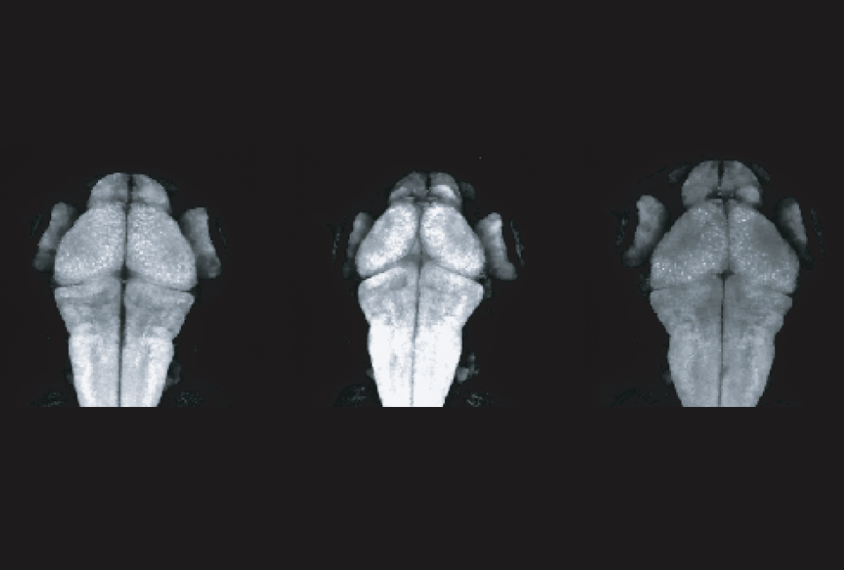Katharine Gammon is an award-winning independent science journalist based in Santa Monica, California. Her work has appeared in The New York Times, The Atlantic, WIRED, The Guardian, Undark, Popular Science, MIT Technology Review, Nature, Hakai and beyond.
Katharine Gammon
From this contributor
Spotted around the web: Mapping histones; COVID-19 births; acetaminophen lawsuits
Here is a roundup of news and research for the week of 31 October.
Spotted around the web: Mapping histones; COVID-19 births; acetaminophen lawsuits
A mix of common and rare variants shapes autism inheritance patterns
The study also reveals a link between language development and common variants.

A mix of common and rare variants shapes autism inheritance patterns
Zebrafish point to new gene involved in brain overgrowth, autism
The gene, YTHDF2, has not previously been linked to autism.

Zebrafish point to new gene involved in brain overgrowth, autism
Lags in genetic testing, variant reporting hinder autism research
Few autistic people undergo the recommended genetic testing for their condition, and test results often do not make their way into public databases, where researchers and clinicians can learn from them.

Lags in genetic testing, variant reporting hinder autism research
Explore more from The Transmitter
Shifting neural code powers speech comprehension
Dynamic coding helps explain how the brain processes multiple features of speech—from the smallest units of sounds to full sentences—simultaneously.

Shifting neural code powers speech comprehension
Dynamic coding helps explain how the brain processes multiple features of speech—from the smallest units of sounds to full sentences—simultaneously.
Astrocytes orchestrate oxytocin’s social effects in mice
The cells amplify oxytocin—and may be responsible for sex differences in social behavior, two preprints find.

Astrocytes orchestrate oxytocin’s social effects in mice
The cells amplify oxytocin—and may be responsible for sex differences in social behavior, two preprints find.
Neuro’s ark: Spying on the secret sensory world of ticks
Carola Städele, a self-proclaimed “tick magnet,” studies the arachnids’ sensory neurobiology—in other words, how these tiny parasites zero in on their next meal.

Neuro’s ark: Spying on the secret sensory world of ticks
Carola Städele, a self-proclaimed “tick magnet,” studies the arachnids’ sensory neurobiology—in other words, how these tiny parasites zero in on their next meal.